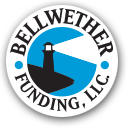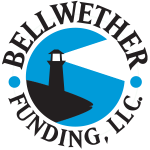The Coming Economic Tsunami
It has been said that high tides raise all boats. I have heard this saying applied to the economic recovery of 2019 as it relates to the overall improvement of businesses in the US. However, the Covid-19 outbreak has turned this high tide into a coming economic tsunami with the shut down of many businesses caused by the “Safer at home” government order. Now that the economy in many states are opening up again, the service, retail or other “non-essential” businesses are looking to reopen. However, it is questionable as to which of these businesses shut down will actually be able to reopen. With the businesses which cannot reopen and shut their doors for good, the number of loan defaults in the banking world will rival the 2008 Economic Downturn. As a result, both JP Morgan Chase and Wells Fargo Banks have put aside sizeable loss reserves ($Billions) to counteract the loan defaults they are anticipating in the coming year.
Thank you for reading this post, don't forget to subscribe!These re-emerging businesses have several issues to contend with. First, those who took advantage of the PPP loans would have payroll and overhead coverage for only 8 weeks, not nearly enough to cover the ramp-up period they will face upon reopening. Those who have been fortunate to stay in operation with take-out orders and on-line sales will likely recover, but those who have been shut down this whole time may not be in a position to resume operations. Also, the uncertainty of the reopening procedures to maintain safe distancing and sanitary conditions will add to their costs when the reopening occurs.
Second, the staff they had when the shut down began may not be the staff they end up with once they do reopen. Unless their workers remained committed to them, and again were able to work on limited hours to facilitate online and take-out business, these people will likely have taken other jobs in the meantime. Re-starting a business is hard enough, but doing so with new staff could be even harder.
Third, they will need to have working capital to re-purchase inventory and necessary materials to reopen. While their banks can assist with some of these costs, it will depend upon their track record prior to the shut down as to whether they will get the funds needed. At the same time, banks will not be offering loans to new customers in fields where the bank has other customers currently in default. No bank willingly takes in new business through the front door when they have non-performing customers in the same industry being pushed out the back door.
The net result is a tough re-start for many small businesses. There will be some businesses who will not survive, and if they do, their owners will run their businesses differently going forward. Here are a few of the changes we expect to see.
Lower inventory levels-if it doesn’t sell, don’t order any more of it.
Narrower product offerings-again, over-stocking on un-proven merchandise could prove to be a costly mistake.
Tighter cost management-the successful business-owner will have a closer watch over costs to minimize loss and waste.
More precise hiring practices-new staff will only be added by necessity, and be highly qualified to minimize training lead-times.
Aggressive target marketing campaigns-businesses will need to target their core markets more effectively to focus on the true growth areas in their market, and make their marketing budget go farther.
Effective time-management-Business-owners will need to be more effective with the time they have to spend within their businesses.
Better contingency planning-Business-owners will be looking at how they can avoid a disaster of this nature from jeopardizing their business’ future again. Many will put contingency plans into place to assure their businesses will continue.
Although many business-owners were caught off-guard by this pandemic, it has been a valuable object-lesson for how to properly plan your business to make it flourish. From putting effective cost control measures in place over the short-term to contingency planning over the long-term, this crisis has forced many business-owners to re-think how they run their businesses. Those who do survive will do so with a new perspective on how to be successful, and what to do when the next economic tsunami hits.
Bellwether Funding, LLC is a commercial loan brokerage firm in Southeastern WI which specializes in funding distressed and credit-challenged borrowers. The firm has been in business for the past 10 years, and owner Bill Frey has over 22 years of commercial loan underwriting and funding experience. As a former banker, he understands how banks underwrite credit and how to properly structure commercial loans to increase their likelihood of successful funding. He has funded hundreds of distressed and complex credits through more than 85 alternative and conventional lending sources. To learn more, please go to www.bellwetherfunding.com, or LinkedIn/BillFrey.
Visit us at www.bellwetherfunding and sign up for our newsletter
Follow us on LinkedIn and facebook
#bridgeloans #bellwether #commercialfinancing #bellwetherfunding #loans #financing #bridgeloanlender #lender #Refinance





